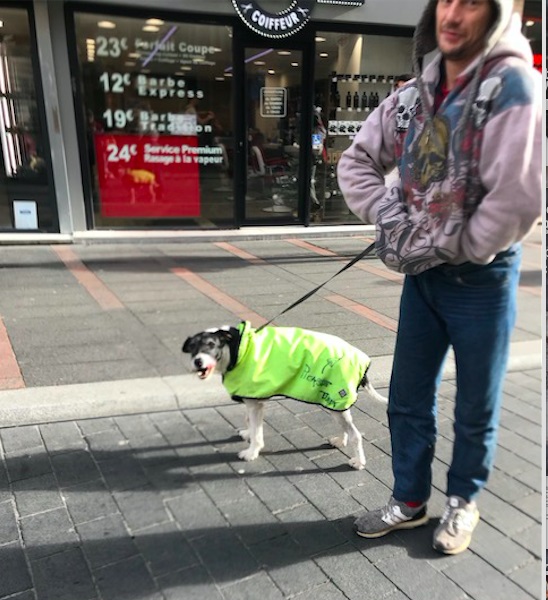PARIS—As I write this, Emmanuel Macron is about to make a major speech addressing the protests that have disrupted his nation. He’s expected to show a new side of himself, more consultative than when he took office in 2017 and the press dubbed him President Jupiter. Now he’s more like a black hole, invisible yet immensely powerful, since his deputies control the Assembly. What will he say? Will he raise the minimum wage, as the protesters have demanded? (Unlikely.) Will he speak of dialogue with his “co-citizens?” (Very likely.) Will he stick to the reforms that have widened the gap between the rich and rest of France, or will he give just enough to satisfy a center that has yet to make its intentions felt? Stay tuned. But don’t expect the American media to convey the full significance of what has happened here over the past month. Our image of the French reflects an ancient Anglo-Saxon bias: They’re chic, but dangerous when they take to the streets. In fact, for all its uncertain and unsettling aspects, the uprising of the Gilets Jaunes offers a model of participatory democracy that we can learn from.

Brigitte Bardot En Marche
It’s been a remarkable thing for me to witness, a potent reminder of the revolutionary tradition that shaped the modern world politically. I watched the movement spread until it encompassed students, farmers, ambulance drivers and railroad workers, in addition to the folks in yellow vests—all of them protesting (or manifesting, as they say) against a society that is growing more and more unequal. On Saturday, 136,000 people marched all over the country, despite warnings from the Prime Minister that mobs were descending on Paris “to destroy and kill.” It took nearly 90,000 police in robocop attire, as well as tear gas, stun grenades, and armored vehicles to control the crowd. Hundreds of people were injured and more then 1700 detained. The show of force managed to contain the mayhem to some extent, but nothing could prevent the young men in hoodies, who always appear on the fringes of demonstrations, from tearing up the center of Bordeaux and other cities. Their m.o. is to maraud once darkness falls. It’s as predictable as school shootings are in the U.S., but, though the level of murderousness in America is unimaginable here, we consider the French violent because they target property. Still, the destruction wasn’t what made this day of protest so significant. Something happened that no one predicted, something that could create a new opening for progressive politics in France—and perhaps for the U.S.
On Saturday I was in Toulouse to visit my French publisher, and I spent the afternoon wandering through that beautiful city. The streets were peaceful, with people in yellow vests (sometimes worn by their dogs) threading through the unfazed crowd. But at twilight, several thousand demonstrators suddenly appeared, signaled by their connections on the internet. The chanting began: MA-cron DÉ-mission—Macron resign! Smoke rose from burning barricades. The Metro was shut down. Yet most of these protesters were not “professional vandals” (I’m quoting The New York Times here) or fascists biding their time. They were people with the rough and ready mien of the provinces. Their vests were inscribed with calls for revolution, but their faces showed more pride than rage. North African immigrants joined in, something I didn’t expect to see, given the enmity that’s supposed to exist between them and the “real” French. The Christmas markets remained untouched, although a placard adorned a metal trellis shaped like a pine tree. “Macron petit zizi,” it read—Macron: little dick.
Paris was where the most remarkable event occurred. It didn’t begin on the Champs Élysées, but around the Place de la République, a large open space with a monument that activists love to deface. (The lion at its base now says gilets.) This was the gathering point for a march on behalf of the environment, which drew 17,000 people, many in green vests. Unexpectedly, yellow vests appeared in the crowd, and after some negotiation, the climate march converged with the Gilets Jaunes protest. That was not supposed to happen, since the two groups are seemingly opposed. But it did, facilitated by the mass arrest of secondary-school students who were protesting against changes to the baccalaureate exam they all must take. The image of them forced to kneel in the dirt, with their hands behind their heads, spread online and shocked the nation. As anyone in the Black Lives Matter movement will attest, forcing kids to kneel is nothing compared with what the police inflict on black teenagers in the U.S., but here it had a major effect. The Gilets Jaunes adapted the stance and knelt before the heavily armed police, their hands behind their heads. The environmental marchers chanted, “social crisis, climate crisis, it’s the same.” The show of solidarity between tax dissidents and ecolos had a stunning effect. It offered a way to assure that the far right does not exploit the mass-discontent. It showed a flexibility in the Gilets Jaunes that their spokespeople claim, but which the media often deny. And it reflected the widespread support for this movement that has made it difficult for the government’s cries of sedition to stick. Even Brigitte Bardot was photographed wearing a yellow vest. I await the dedication of a pastry to the protesters.
Dozens of demands have been made by them—everything from raising the minimum wage to rejecting the UN resolution on immigration—but none has achieved a consensus. This is a movement proud to call itself ni gauche, ni droit (of neither the left nor the right). It encompasses many tendencies, but its members seem to agree on one thing. The French constitution allows for referenda, and the protesters want the state to create a website on which anyone can post a proposal. If it earns 700,000 signatures, the entire nation gets to vote on it, and if it passes, the law must change to reflect the popular will. This is precisely what many progressives fear. What would happen if same-sex marriage were put to a vote? What about a demand to strip riotous immigrants of their French citizenship? Would the people choose to ban not just the burka, which is already forbidden, but also yarmulkas from being worn in public? On the other hand, why should the election of a government foreclose the repeal of legislation that people never voted for—especially when it involves making people pay more to heat their homes while lowering household taxes on the wealthy. I’m more hopeful about this movement, having watched it close-up, but I also see the danger in its passion. This is always the risk of populism: it can lead anywhere. Where it ends up depends substantially on how those in charge behave.
Social empathy is not a major virtue of bankers—and Macron is one. They know how to profit, but usually not how to lead. He will have to demonstrate skills he’s never shown. But the problem isn’t just his style; it’s also his program. If that doesn’t change, President Jupiter will wobble for the rest of his term, at best. I’m left with the image of people in yellow vests, who have never been on television, sitting next to professional politicos and offering their perspective. What do they want, the commentator asked, and a protester replied, “Equality.” It’s in the national motto—Liberté, egalité, fraternité—and now it’s in the streets.

The Threat to France